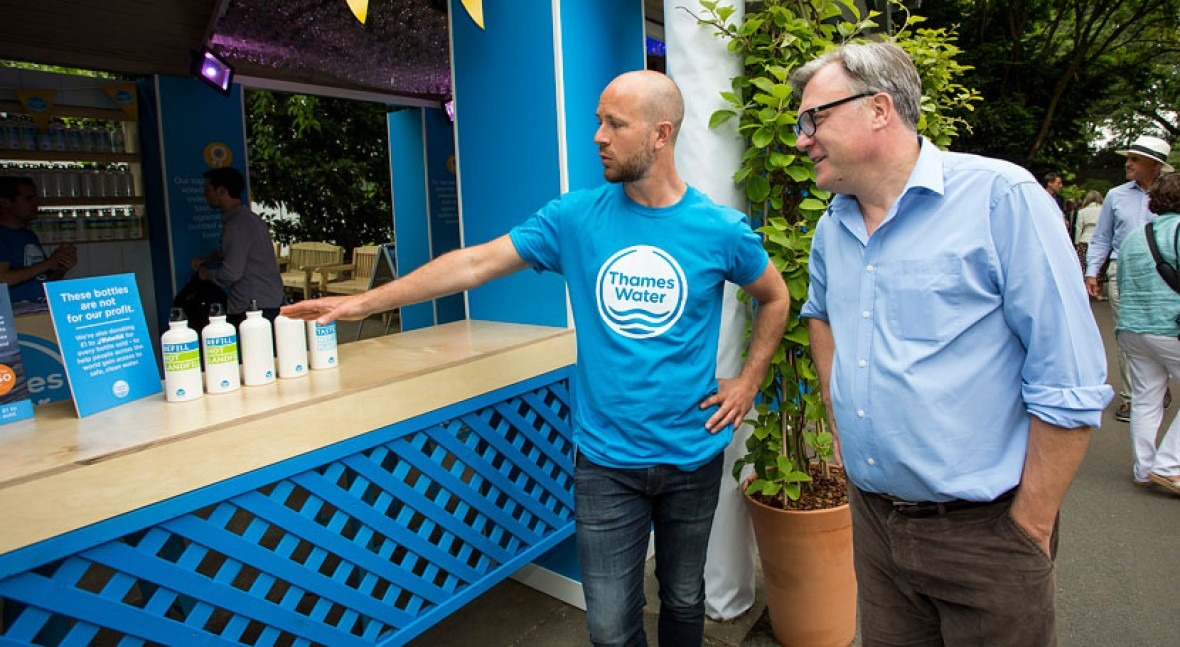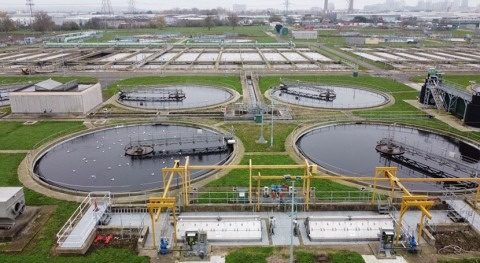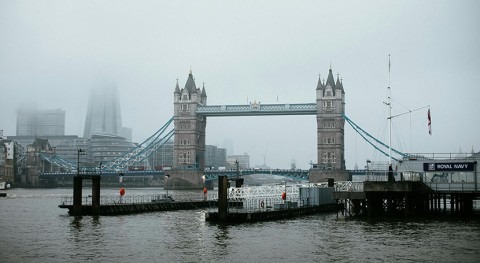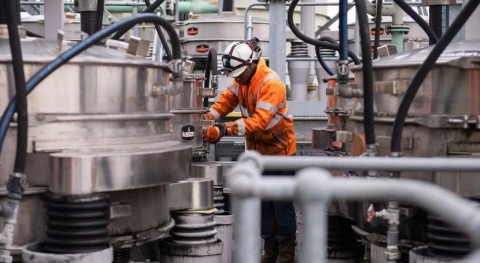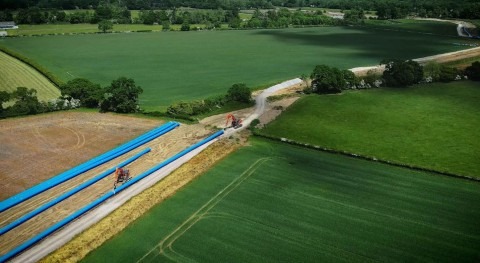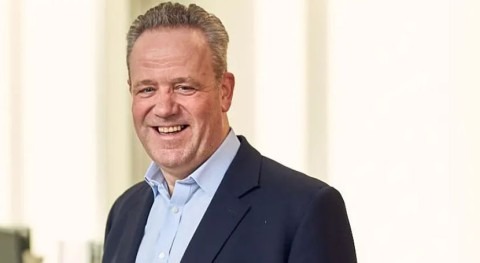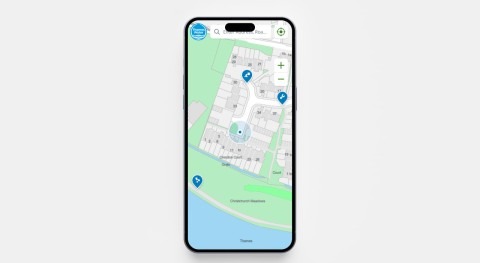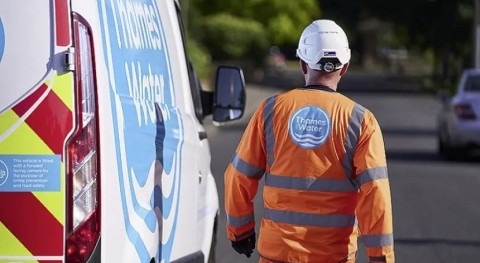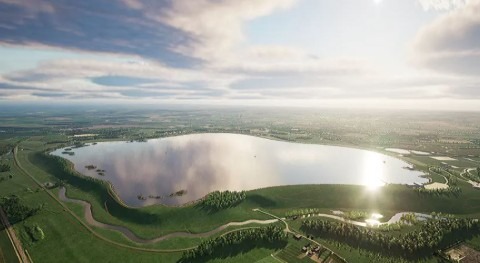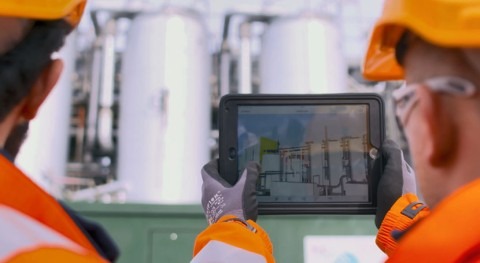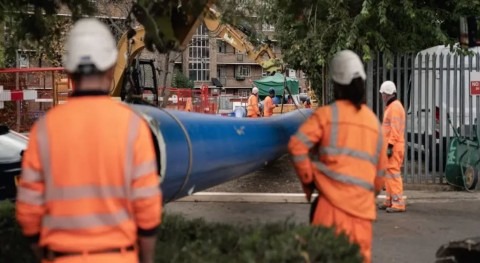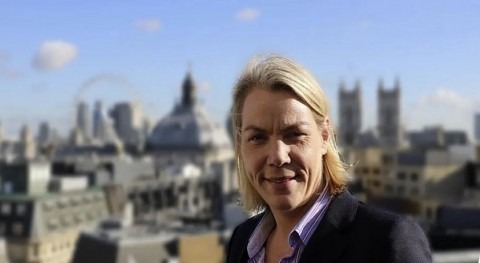Communicating about water is vital, especially nowadays, when global warming, population growth, and changes in land use are decreasing the world's freshwater supply. More than ever, global water companies need to increase their communication to reach the general population and inform them of the growing water crisis we are facing. This is why we have begun a cycle of interviews to Communication Officers of top businesses in the water sector to find out how they are facing this complex challenge.
Today, we interview Stuart White, Head of Media Relations at Thames Water, to discover how the UK’s largest water and wastewater company communicates about this precious resource.
Question: Firstly, we would like to know briefly your career path.
Answer: I started off as a sports journalist – while playing semi-professional football – before moving into newspaper editing, public relations, copywriting and then media relations.
Q: What is your role within Thames Water?
A: I’m Thames Water’s head of media relations, leading the company’s 24-hour newsroom. We are a small, central team that tells the company story using editorial standards, practises and with a journalistic mindset. We pull in news and stories from around the business and share on an almost daily basis using the most effective channels, ultimately to drive positive media coverage and engage audiences. Importantly, the team also instantly switches to crisis mode during operational emergencies to communicate with customers, media and stakeholders across all channels when things go wrong. No two days are the same!
More than 15 million people in the UK depend on Thames Water every day to go about their lives
Q: Why do you think it is important to communicate about water?
A: Water is life. More than 15 million people in the UK depend on Thames Water every day to go about their lives, so our responsibilities to the environment and customers are huge. We also need to work more closely with our customers, listen to them and build a bond, to meet major challenges of the future – including population growth and climate change, which both have a significant impact on water resources.
Q: How has the social media phenomenon influenced the way of communicating about water?
A: Social media has been great for publicising our good news. The ‘Monster Whitechapel Fatberg’ story, for example, was the top worldwide Twitter Entertainment Moments story following the Greg James Radio 1 Show and a Radio 5 Live fatberg video was viewed 1.2m times on Facebook in one weekend. Of course, if customers lose water supply, they use social media to get in touch and it is therefore important from our side that we update our channels with the latest information, to tell the story of the repair – using images and live video from the scene where possible.
Q: What are the main challenges your company faces when informing about the water sector?
A: People have such busy lives they often don’t think about water. You turn the tap on and it’s there, and flush the toilet and it’s gone. The challenge which we work hard to overcome is to get people really interested in all the cool things we do – like turning sewage into renewable energy!
Water resources is a growing challenge; however, in March, the chief executive of the Environment Agency, Sir James Bevan, warned that “England is set to run short of water within 25 years” without action and talked about how the country is facing the ‘‘jaws of death” at the point where water demand from the country’s rising population surpasses the falling supply resulting from climate change. This has really put water on the agenda and helped raise awareness of just how precious a resource it is.
We fixed record numbers of leaks and challenged families to reduce water use by 10 litres a head every day to save 100 million litres

Interview with Swedish Radio 1 about fatbergs
Q: Has Thames Water ever faced a communications crisis? If so, what tools were used to mitigate these developments?
A: The summer heatwave could have been a crisis had we not used all of our communications skills to reach our customers, and encourage them to slow down on their water consumption. We fixed record numbers of leaks and challenged families to reduce water use by 10 litres a head every day to save 100 million litres – enough to fill 38 Olympic-sized swimming every day – as demand during the unusually hot spell rocketed.
We used traditional print, radio and television channels, using great spokespeople to deliver the messages, plus billboards, social media, text messaging and face-to-face conversations to make it clear that brown lawns bounce back, paddling pools can be used to bath the kids or water plants, and that we all need to do our bit to save water to ensure there is enough to go around. It worked, and disruption to our millions of customers was isolated and minimal.
Q: What type of water news do you think the public is most interested in?
A: Fatbergs. Congealed masses of fat, oil, wet wipes, nappies, and other unflushables which block our sewers and put homes and the environment at risk of flooding. These stories have the yuck factor and really spark conversations. On the water side, anything to do with investment to benefit our customers or new innovations, like our work to use drones to detect leaks.
Fatberg is a word invented by Thames Water to bring the very serious problem of sewer abuse
Q: Lastly, could you highlight one of your company’s communications success stories or a water-related communications success story you found interesting?
A: The news stories centred around the 130-tonne Whitechapel Road fatberg, discovered in 2017 and still in the media now, reached more than 150 countries, including America, Australia and Germany. It captured imaginations, shocked and disgusted, and got people everywhere talking about what happens next to their waste – for the first time, in many cases. A chunk of it also ended up in the Museum of London.
Our media campaign was well thought-out, came with no marketing cost and was a huge success. We created a celebrity, were daring with our choice of language, repeatedly changed the news angle of the story, opened up the sewers to journalists, put forward great spokespeople and shared high-impact imagery.
It has since sparked campaigns around the world, including ‘Trash it. Don’t flush it’ in New York recently, and led to the introduction of a new ‘fine to flush’ symbol on wet wipe packaging. This tells consumers that the wipe passes stringent flushability industry tests, with clearer labelling also more visible on those that do not.
Fatberg is a word invented by Thames Water to bring the very serious problem of sewer abuse – flushing wipes and draining fats – to life. We created a monster, something to fear, and the name is now used around the world and in the dictionary. Result.


